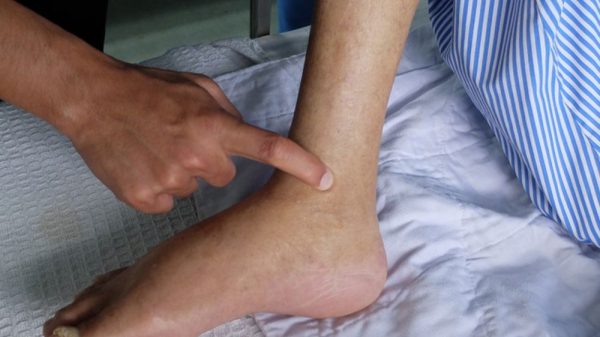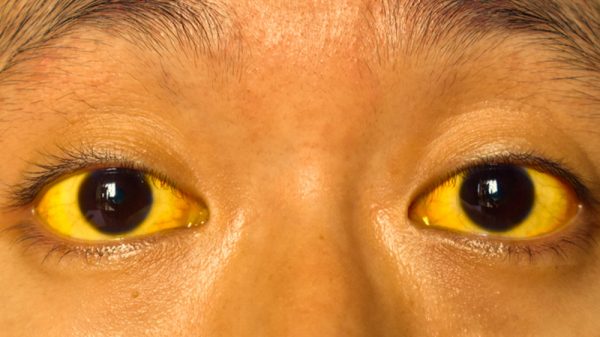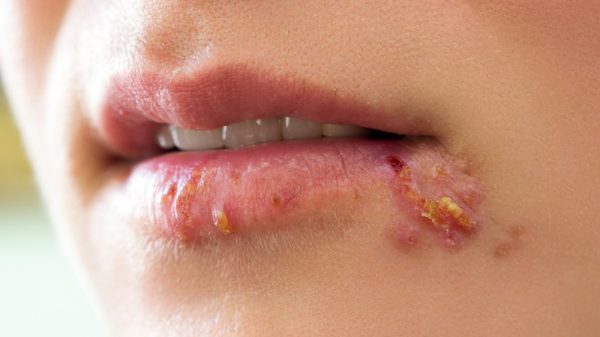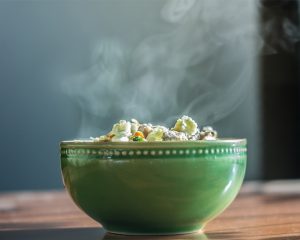If you’re struggling with anxiety, you are not alone. Millions of Americans experience anxiety accompanied by disruptive and disturbing symptoms. Is overcoming anxiety possible? You should know that it is entirely possible to overcome anxiety, and many tools, strategies, and resources exist to help you accomplish this.
What Is Anxiety?
We all experience stress during normal, everyday activities. From work deadlines to sitting in traffic, we are all familiar with the feeling of stress. The stress response is an innate, biological mechanism that is referred to as the “fight-or-flight” response. We may feel our heart rate go up, our jaw may clench, and our hands sweat. In response to a stressor, the central nervous system is switched on and adrenaline and cortisol are released into the bloodstream. This response to pressing circumstances is normal. And usually, once the triggering event has passed, the body recalibrates and returns to baseline.
Anxiety, however, can be described as an exaggerated stress response. Anxiety is a disproportionate response to a trigger. Physiological symptoms of anxiety include intense sweating, racing heart rate, shaking, stuttering, and nervousness. Anxiety attacks can turn into panic attacks, which are acutely intense stress responses that hijack the mind and initiate a feedback loop that worsens the sense of impending doom.
Types of Anxiety Disorders
Anxiety exists on a spectrum, and while the entire population experiences anxiety in some form or another, some people have severe cases of anxiety that are diagnosable. More specifically still, while some people have a generalized anxiety disorder, others have narrower forms of anxiety that may manifest as specific phobias.
As described by the U.S. Department of Health and Human Services, there are typically five types of anxiety disorders. (1) All anxiety disorders have at least some overlap and commonalities in symptoms.
- Generalized anxiety disorder: When someone has a generalized anxiety disorder, he or she continuously worries to the point where constant worrying interferes with daily functioning. Worries may seem excessive in nature and may repeat in a loop-like pattern. Individuals with a generalized anxiety disorder may be abnormally concerned about their relationships with family or friends, financial situations, work performance, and the future.
- Obsessive-compulsive disorders: Individuals with obsessive-compulsive disorders experience a continuous compulsion to complete rituals and routines. The rituals and routines may be extreme, repetitive, and seem illogical to observers.
- Post-traumatic stress disorder: Individuals with post-traumatic stress disorder (PTSD) have experienced a traumatic event that threatened wellbeing or inflicted serious physical harm. Individuals suffering from PTSD often experience panic attacks, anxiety attacks, flashbacks, and other unpleasant anxiety-related symptoms.
- Panic disorder: An individual with panic disorder experiences sudden, recurrent panic attacks accompanied by feelings of impending doom, imminent death, fear, and a racing heart rate.
- Social anxiety: Social anxiety describes anxiety related to interactions with other people. Some people have very specific forms of social phobia that are limited to certain contexts, like public speaking. Others have a more generalized form of social anxiety that exhibits in all social situations and contexts.
When to See a Doctor
If you’re experiencing debilitating anxiety that interferes with your life, it’s best to talk to a doctor to ensure a proper diagnosis and to make sure there are no other confounding illnesses. Identifying the form of anxiety you’re experiencing is key to treating it successfully.
Medical interventions can be extremely helpful for managing and overcoming anxiety. For example, many people who experience panic attacks find it helpful to be armed with medications to combat an oncoming panic episode. Simply having the medications on hand can be psychologically reassuring and help reduce the severity of panic attacks, without even having to use the medication. While medications like benzodiazepines target anxiety by soothing the central nervous system and brain, others like beta-blockers work by targeting the physiological symptoms like a racing heart rate and sweating. Sometimes, physicians may prescribe a mix of both to chemically target anxiety on both fronts.
A therapist can also provide helpful resources for handling panic attacks and anxiety triggers. A cognitive-behavioral therapist can work with you to identify your anxiety triggers, so you can stop an anxiety episode before it starts. Cognitive-behavioral therapy (CBT) also equips you with mental strategies for handling an anxiety episode.
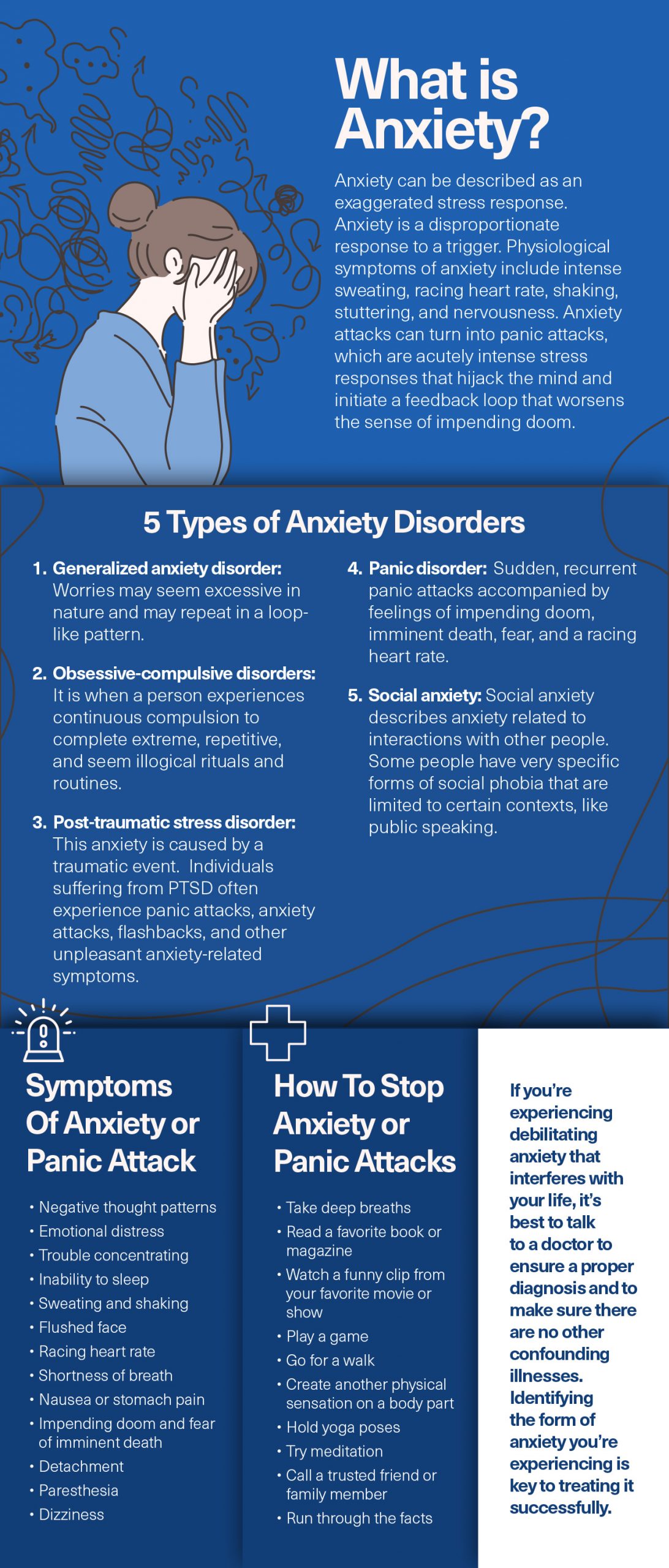
Lifestyle Tips and Strategies for Beating Anxiety
In addition to getting help from physicians and therapists, lifestyle changes and self-help strategies can be put to use in your everyday life to combat anxiety.
Knowing the Symptoms of an Anxiety Attack or Panic Attack
If you’re wondering how to stop an anxiety attack or panic attack, one of the keys to fighting anxiety is simply being aware of the unpleasant symptoms that anxiety can cause. Before going through the symptoms, let’s draw a distinction between anxiety attacks and panic attacks. Both exhibit many of the same symptoms, though a panic attack is generally more disruptive and intense.
Being aware of the symptoms associated with an anxiety attack or panic attack helps you identify what you’re experiencing, take necessary steps to disarm the anxiety, and deescalate your stress response.
- Negative thought patterns: If you’re finding yourself locked in a loop of negative thought patterns, this is a warning sign that an anxiety attack or panic attack may be creeping up. Leading up to an attack, the brain has a way of focusing on the absolute worst-case scenario, despite sufficient evidence that this scenario will likely not unfold.
- Emotional distress: Feelings of emotional distress that you might be experiencing include worry, fear, and irritability.
- Trouble concentrating: When you experience anxiety, it can feel impossible to concentrate on literally anything else. The mind feels completely overtaken by recurring, spiraling thoughts.
- Inability to sleep: When experiencing an anxiety attack or panic attack, it is essentially impossible to sleep. With the sympathetic nervous system activated, you may actually feel wide awake.
- Sweating and shaking: Sweating and shaking is a common and unpleasant side effect of the stress response.
- Flushed face: This symptom is another side effect of the stress response. As the stress response activates, it’s normal for the body temperature to rise and to feel flushed.
- Racing heart rate: This is likely one of the most frightening symptoms that accompanies panic attacks. It can feel like the heart has a mind of its own during panic attacks. It’s even common to experience symptoms of what seems like a heart attack, including chest pain, chest tightness, and heart palpitations.
- Shortness of breath: Feeling like it’s difficult to breathe is another symptom that comes with anxiety attacks. As with heart-related symptoms, this sensation can be extremely frightening, and the sense of fear and anxiety can exacerbate all symptoms.
- Nausea or stomach pain: Anxiety can manifest itself in gastrointestinal symptoms as well. When an anxiety attack or panic attack begins, you may feel extremely nauseous or feel stomach pain or cramps.
- Impending doom and fear of imminent death: This symptom is mainly characteristic of panic attacks. In the midst of a panic attack, you are experiencing sheer panic. Regardless of the presence of a trigger or stressor, a panic attack can make you believe that you’re about to die and instill a disturbing sense of impending doom.
- Detachment: This symptom is also associated primarily with panic attacks and is connected to the other symptoms of impending doom and fear of imminent death. In the midst of intense fear, it is common to feel separated or detached from one’s surroundings or even from oneself. Individuals who suffer from panic attacks often describe this sensation as “feeling like you’re going crazy.”
- Paresthesia: This symptom is best described as the pins and needles feeling that you experience when one of your limbs falls asleep. Paresthesia can also describe anxiety-induced numbness in the fingers and toes. This can be an alarming sensation and worsen anxiety. The paresthesia that accompanies anxiety is most likely caused by hyperventilation and vasoconstriction that limits blood flow.
- Dizziness: When your sympathetic nervous system is on overdrive and causes floods of adrenaline, a racing heart, sweating, and all other unpleasant symptoms, it is not uncommon to also feel light-headed and dizzy.
How to Stop Anxiety Attacks and Panic Attacks in Their Tracks
An anxiety attack can arise in any scenario, though it may become more likely in high-pressure situations. Being equipped with calming strategies is helpful for stopping anxiety attacks in their tracks before they escalate.
When you feel the symptoms of an anxiety attack or panic attack creeping in, here are a few tips for preventing it from worsening and helping you return to a more relaxed state.
- Take deep breaths. You have probably heard about deep breathing before, but it’s a tried and true anti-anxiety tool. Try taking deep breaths in through your nose and letting them out slowly through your mouth. Focus only on your inhales and exhales in order to distract from anxious thoughts. Make sure to take slow, deep breaths. Upon inhaling, hold your breath for a few seconds as it feels natural and comfortable. This slow breathing technique has the opposite effect of hyperventilation and slows your heart rate, soothes the nervous system, and re-centers the mind.
- Read a favorite book or magazine. Being absorbed in your favorite storyline or learning new information from your favorite magazine or journal can be a useful strategy for distraction. It can also help rein in anxious thoughts and emotions that seem to be running wild.
- Watch a funny clip from your favorite movie or show. Watching a favorite movie or show is relaxing in and of itself. Beyond that, as you register humor, the mind is soothed and experiences a different, positive emotion that can help replace negative emotions associated with anxiety.
- Play a game. Play a game or complete a mind-teaser, even one as simple as a crossword puzzle or a phone game. Distracting your mind and diverting your focus elsewhere diffuses anxiety and quells symptoms.
- Go for a walk. Getting outside and observing what’s happening around you can be grounding. Getting a little sunshine, feeling the wind, and passing others on the street can help you re-orient yourself and rein in the runaway part of your brain.
- Create another physical sensation on a body part. This doesn’t have to be dramatic. Creating another physical sensation can be as simple as pinching the skin on one of your hands or putting pressure on your wrist. Simply creating new physical sensation channels your focus towards that new sensation, while removing focus from all the unpleasant physical symptoms associated with anxiety. This, in turn, can cause anxiety symptoms to die down, making it easier to then re-center your thoughts.
- Hold yoga poses. Though being in the midst of an anxiety attack or panic attack may not seem like the ideal time to engage in yoga, it’s worth a try. Holding a challenging yoga pose draws the attention from your anxious thoughts and physical symptoms to the task at hand. Balancing your body and stretching your arms and legs also creates new physical sensations that further draw focuses away from anxiety.
- Try meditation. Though meditation may not necessarily be effective during a panic attack, it may have a soothing effect during an anxiety attack. The meditative practice calls for focusing on the present moment and observing your existence while letting thoughts pass through the mind. While meditating, anxious thoughts will enter your mind. The key is to then acknowledge them while allowing them to pass through, like transient visitors.
- Call a trusted friend or family member. Sometimes, no one can talk you down better than someone who knows you really well.
- Run through the facts. During a panic attack or anxiety attack, the emotional part of the brain is attempting to control the mind and the body’s entire physiological response. However, there is also another, more logical part of your brain. Run through statistics and facts that help you re-center your thoughts and allow the more logical part of the brain to regain some control. In some cases, it may even be helpful to have a running list of reassuring facts and statistics written on your phone or on a handy piece of paper, to pull up in the midst of a panic attack. For example, reading the statement “You are healthy and sane, and you’re not about to die” may help you calm down from a panic attack.
Following a Healthy Diet Helps Anxiety
Taking care of your body has a reciprocal effect on the mind. When you eat better, you feel better. This same concept applies to anxiety. Eating food that protects your health and improves brain function may have inhibitory effects on anxiety.
Foods that support brain health may also play a part in soothing an anxious mind. Foods good for brain health include foods high in healthy fats, essential amino acids, and antioxidants.
Omega-3 Fatty Acids
Omega-3 fatty acids are polyunsaturated fats that are found in specific foods. Flaxseeds, chia seeds, and walnuts contain the plant form of omega-3 fatty acids, while salmon and mackerel contain animal sources of omega-3 fatty acids. Both forms fortify cellular membranes and enhance communication among neurotransmitters.
Essential Amino Acids
Essential amino acids are found in dietary protein sources. Amino acids are the building blocks of protein, and some of the amino acids are categorized as nonessential to human health since we are able to manufacture them internally. Essential amino acids, on the other hand, must be acquired from the foods we eat. Getting optimal ratios of essential amino acids each day is critical to supporting all biological processes including brain health and muscle synthesis. In particular, the essential amino acids tryptophan and phenylalanine play an important role in producing serotonin, norepinephrine, epinephrine, and dopamine, all of which can influence the stress response.
Antioxidants
Antioxidants are micronutrients in food that influence brain health. In particular, antioxidants are found in plant-based foods including vegetables, fruits, and whole grains. Antioxidants are helpful with oxidative stress that is inflicted on brain cells as a result of the anxiety response or stress response.
Unchecked and uncontrolled anxiety over time can lead to chronically high levels of stress hormones, which can lead to systemic inflammation. Inflammation plays a role in numerous health problems including metabolic syndrome and fatty liver disease. Eating the right foods can combat inflammation associated with anxiety and stress.
The influence of food on mental health is backed up by science. Research shows that diet is closely tied to brain health and influences anxiety and depression. Research reveals that consuming foods rich in antioxidants, essential amino acids, B vitamins, and omega-3 fatty acids may play a role in supporting mental health by mitigating anxiety and stress. (2)
Join a Support Group
When it comes to anxiety attacks and panic attacks, you are not alone. Joining a support group allows you to share your experiences while also learning from others who have had similar experiences. Coming together to connect provides perspective while also affording the opportunity to share coping mechanisms and recommendations for therapeutic techniques. Overcoming anxiety doesn’t need to be done alone. Coming together and supporting one another is the most effective way to overcome anxiety.
Avoiding Situations That Cause Anxiety: A Double-Edged Sword
When you’re suffering from anxiety, it may seem like a good idea to avoid the very thing that seems to be causing the anxiety. However, this is not always an effective strategy.
Let’s choose a simple scenario, just for example’s sake. Let’s say someone is experiencing anxiety over going to the grocery store during rush hour. Listening to anxious thoughts would likely prevent this person from going to the grocery store directly after work. At the same time, this is giving the anxiety power to dictate actions. When in reality, facing the grocery store at rush hour may in fact not be nearly as bad as anxiety has led this person to predict.
Exposure therapy is a coping strategy for anxiety that entails facing the scenario triggers anxiety. While in severe cases it’s not necessarily a good idea, for milder cases of anxiety, this strategy can be highly effective. Fighting against what anxiety tells you to do can help recondition the mind to separate anxiety-related thoughts from reality.
Exercise
Exercising regularly is an effective strategy for helping reduce anxious feelings. Regularly exercising boosts the levels of endorphins in the brain, which can ward off negative feelings. Plus, exercise strengthens the musculature throughout the body and boosts healthy heart function, warding off metabolic conditions.
Tips for Facing Travel Anxiety
Additionally, being equipped with specific strategies for handling travel anxiety can be helpful when you’re headed on a trip, whether you’re taking a road trip to the beach or boarding a flight to the other side of the world.
One particular anxiety that is common among people is travel anxiety, especially when it comes to air travel. Traveling by air commonly contributes to anxiety by instilling the feeling of losing control and claustrophobia. To help quell anxiety attacks and panic attacks related to air travel, the above strategies and tips are directly relevant. Prior to your flight, make sure you have access to games, books, movies, and shows. Jot down reassuring statements about the safety of air travel, as well as the likely positive outcome so that you can stay connected to grounding facts throughout the flight.
On top of that, as the coronavirus spreads and the media fuels fear, it’s natural for many people to have a heightened sense of travel anxiety. Many of the strategies discussed above are also helpful when applied to coronavirus. For example, verifying facts is helpful to divert your thoughts from worst-case scenarios and reorienting the mind to the probable, positive situations and outcomes. In order to effectively cope with heightened anxiety, it’s helpful to be equipped with facts from trusted, verified sources. In addition, exercise good hygiene practices that have been proven to be effective, like washing your hands diligently and avoiding touching your face.
Stick to your routine as best as possible. It can be tempting to view traveling as a good excuse to stray from your routine. However, straying too far from a healthy diet and disrupting your routine too much can worsen anxiety. Though your environment is changing, strive to maintain whatever parts of your routine that you can. This may mean that you incorporate physical activity into your day as you normally would, or you bring along supplements that you use and follow your normal diet as well as possible.
Things to Keep in Mind
Anxiety disorder is a form of mental illness, and mental health is of utmost importance. Don’t delay getting the help you need from health professionals. Especially if you’ve exhausted all lifestyle changes, diet changes, and relaxation techniques for reducing anxiety and nothing has been successful, it’s time to talk to a doctor or therapist. If you’ve tried all kinds of stress-reducing techniques but your anxiety continues to be debilitating and prevents you from enjoying your favorite activities, medication and cognitive behavioral therapy are helpful tools to combine with lifestyle changes.
Conclusion
Taking control of your anxiety is crucial to supporting your overall health and well-being. Anxiety attacks and panic attacks are characterized by highly uncomfortable mental and physical symptoms. Suffering from anxiety long-term has repercussions for brain health and physical health, so it’s important to take care of it sooner than later. Self-help strategies, healthy foods, regular exercise, medications, and cognitive behavioral therapy are all critical factors that support the process of overcoming anxiety.
References:
